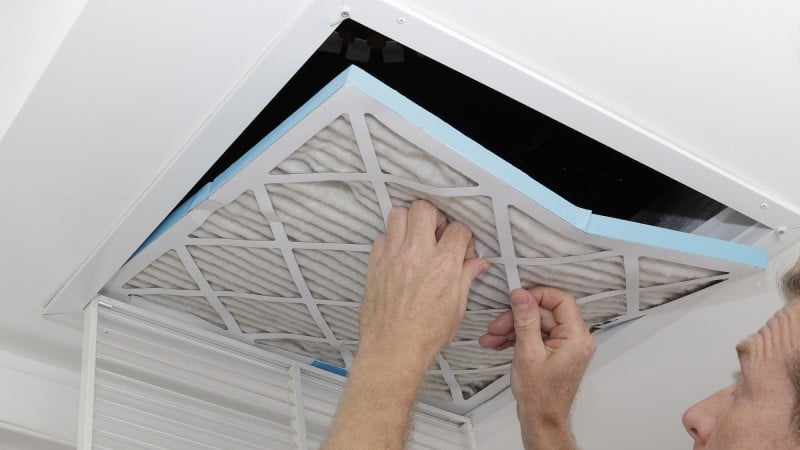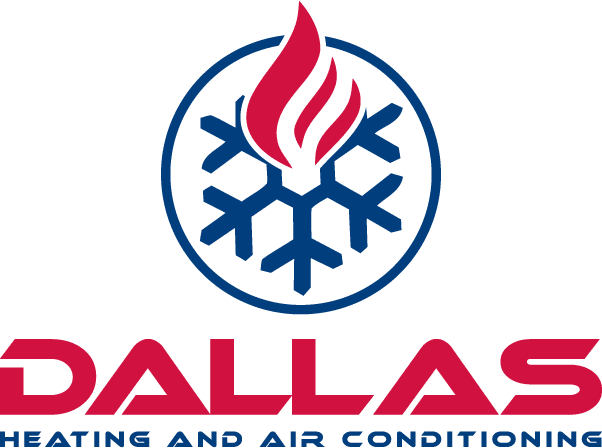Choosing The Right Air Filter For Your HVAC System

Choosing the right air filter for your HVAC system is like a detective searching for clues. The best filter should be able to solve all of the homeowner's indoor air quality problems; however, selecting the wrong filter can turn into an expensive and time-consuming ordeal. As such, this article aims to provide readers with valuable insight into how to pick a filter that will protect their home from airborne contaminants while still meeting their budget requirements.
The first step in finding the perfect air filter is understanding what issues it needs to address. Indoor pollutants range from dust mites and pet dander to chemical vapors and smoke particles. Different filters have different capabilities when it comes to trapping these contaminants — some are designed specifically for larger particles, others for smaller ones — so it is important to know which type of particle you need your filter to trap before making any decisions.
In addition, homeowners also need to consider factors such as cost, efficiency ratings, and ease of maintenance when choosing an air filter. It may seem overwhelming at first but by asking the right questions and doing some research upfront, they can find the best option that meets both their needs and their budgeting constraints.
The Importance Of Air Filters In HVAC Systems
Air filters in HVAC systems play an important role in the overall performance of the system. They are designed to remove dust, pollen, pet dander, and other airborne contaminants from the air that passes through them. This helps keep indoor air clean and safe for occupants while also preventing dirt and debris from clogging up your heating and cooling components. In addition, having a well-functioning air filter can help improve energy efficiency by allowing your HVAC system to run more efficiently.
Despite their importance, many homeowners neglect or forget about their air filters until they start to notice problems with their system's performance. It is recommended that you check your air filter on a regular basis and replace it if necessary — this should be done at least every three months depending on usage levels. Doing so will ensure that your HVAC system runs properly and you don't have to worry about costly repairs down the road.
Understanding different types of air filters is essential for choosing one that meets your needs. There are several factors to consider when making this decision including size, MERV rating (Minimum Efficiency Reporting Value), filtration technology, price point, and replacements costs over time. Understanding these factors will help you choose an effective filter for your particular HVAC system that offers optimal performance at an affordable price - ultimately helping to increase its longevity too.
Understanding Different Types Of Air Filters
Air filters are a critical component of any HVAC system, as they help to keep the indoor environment clean and free from airborne pollutants. There is an array of air filter types available for purchase, ranging in size, material type, and efficiency rating. Understanding what each type offers can be beneficial when deciding which one to use in your home or office.
The two most common materials used to make air filters are synthetic fibers and natural fibers such as cotton. Synthetic fiber-based air filters tend to have longer lifespans than their natural counterparts but may not be able to trap smaller particles like pollen or dust mites that can cause respiratory problems. Natural fiber-based filters offer better filtration abilities but need more frequent replacement due to their shorter lifespan.
In addition to being made from different materials, air filters also vary in size and shape depending on where they will be installed in the HVAC system. Air filters come labeled with a MERV (Minimum Efficiency Reporting Value) rating, which indicates how well it captures larger allergens like pet dander and mold spores compared with other models. This allows homeowners to research various brands and compare models side by side before making their decision so they can choose the best option for their needs.
Comparing these ratings helps consumers identify the ideal product based on their specific requirements: cost effectiveness, longevity versus performance, budget restrictions, etc., allowing them to select a reliable solution that fits both their lifestyle and budget simultaneously.
Comparing Air Filter Ratings
When selecting an air filter for HVAC systems, it is important to compare the different ratings. Air filters are typically rated according to their minimum efficiency reporting value (MERV). MERV rating scale ranges from 1 to 16 and is based on how much dirt, dust and other particles can be trapped by a single filter. The higher the number, the more efficient the filter will be in trapping these particles.
In addition to MERV rating, another factor that should be considered when comparing air filters is whether they contain electrostatic material or not. Electrostatic materials attract small airborne particles like pollen and dust mites which helps improve filtration efficacy. Furthermore, some air filters come with additional features such as antibacterial coating or activated carbon which can reduce odors and volatile organic compounds (VOCs) in indoor air quality.
Understanding the various ratings of available air filters can help ensure that one selects an appropriate product for their specific needs. This information also provides insight into what type of filter may provide better protection against allergens and other pollutants present in indoor environments. With this knowledge, consumers are able to make informed decisions about what kind of filter would best suit their requirements without sacrificing performance or comfort.
Having reviewed all aspects related to choosing an effective air filter for a HVAC system, it is now time to explore common mistakes associated with picking an improper unit - mistakes that must be avoided at all costs.
Common Mistakes To Avoid When Choosing An Air Filter
"A stitch in time saves nine". This adage serves to remind us that the small things we do now can save us from bigger issues in the future. When it comes to choosing an air filter for your HVAC system, there are a few common mistakes you need to be aware of:
1) Choosing a filter based on price alone - While finding an affordable option is important, remember that cheap filters may not last as long and could require more frequent replacements than higher-end models.
2) Not checking the size - A filter's size is essential because if it's too large or too small, it won't fit properly and won't work effectively.
3) Ignoring the MERV rating – The Minimum Efficiency Reporting Value (MERV) rates how well an air filter works at capturing airborne particles. Higher ratings mean better filtration performance but they also mean higher pressure drop which requires extra energy consumption.
4) Neglecting maintenance – Even with the right type of filter installed, regular cleaning and changing will ensure maximum efficiency and protect against any dust buildup within your system.
These simple steps can help you make sure you choose the best air filter for your needs without compromising on quality or safety standards. With careful attention to detail when selecting a new air filter, one can avoid potential problems down the line resulting from improper installation or selection. Thinking ahead helps prevent costly repairs and ensures a safe environment for everyone's benefit. Hereafter, we will discuss installing this air filter into your HVAC system….
Installing Your Air Filter
Installing your air filter is an important step in ensuring that the heated and cooled air circulates properly throughout a home. Like setting up a tent, it requires careful attention to detail; otherwise, gaps can be left between pieces of fabric or insulation which will prevent you from getting the full protection desired. Installing an air filter properly is just as crucial for protecting your family's health and maintaining comfort levels indoors.
First, select the right-sized filter with the correct MERV rating depending on what contaminants need to be removed. To ensure proper airflow, measure precisely before purchasing so there aren't any surprises when fixing into place. With clean hands, take out the dirty old filter and slide in its replacement without touching either side of the new one. If necessary, adjust by gently pushing down until snugly fit within all four corners - this helps keep dirt outside rather than inside where it could cause respiratory issues.
Finally, double check for any potential weak spots in coverage due to incorrect measurement or installation technique that might allow allergens to pass through unhindered. The process may seem tedious but this simple yet effective task represents another way of caring for your household's wellbeing while also helping maintain energy efficiency by keeping dust and debris away from sensitive components like blowers and coils.
Conclusion
Choosing the right air filter for your HVAC system is an important step in keeping your family safe and healthy. The type of filter you choose can make a big difference in how well it works to protect against dust, pollen, smoke and other airborne particles that may enter your home. In conclusion, here are four key points to remember when selecting the best air filter:
First, consider what type of contaminants you want to keep out of your home. Different types of filters will offer varying levels of protection from different kinds of particulates. Airborne allergens like pet dander or mold spores require a more robust HEPA-rated filter compared to simpler fiberglass filters designed primarily for large debris such as sawdust or lint.
Second, think about how often you need to replace the filter depending on its size and performance capabilities. Most standard residential AC units have 1” thick filters which should be replaced every 30 days or so; however thicker 4” pleated filters usually last up to 90 days before needing replacement. Additionally, some high efficiency models might only need changing once per year while others could even go longer between replacements if they remain relatively clean over time.
Third, factor in cost when deciding which one is right for your needs since higher quality options tend to come with heftier price tags but also provide better filtration than cheaper alternatives. It is important to take into account both initial purchase cost and long term maintenance costs associated with each type of filter so that you can find a balance between affordability and effectiveness.
Finally, don't forget about convenience! Many newer models now allow users to simply vacuum their filters instead of having them replaced entirely - saving time and money down the line. Investing in this type of easy maintenance model can help reduce hassle without sacrificing performance value.
Selecting the correct air filter for your HVAC system requires mindful consideration taking into account factors such as contaminant level desired, frequency needed for replacement, cost involved and ease of use/maintenance - all critical elements necessary for achieving optimal indoor air quality at reasonable prices over time.
Frequently Asked Questions
How Often Should I Change My Air Filter?
The importance of changing an air filter in a HVAC system cannot be overstated. It is essential that the filter be changed regularly to ensure sufficient airflow, optimal energy efficiency and clean indoor air quality. The frequency at which an air filter should be replaced depends on several factors such as:
1) The type of filter being used;
2) How many people live in the home;
3) Whether pets are present; and
4) The amount of dust and other contaminants in the environment.
It has been suggested by experts that disposable fiberglass or synthetic filters should be changed every 30-90 days depending on how often the system is running, while electrostatically charged filters may last up to 6 months before needing replacement. However, this interval can vary depending on usage patterns and individual living conditions. For example, if you have more than one pet or smoke indoors, it's likely that your air filter needs to be changed more frequently. Similarly, if there are multiple family members who suffer from asthma or allergies then frequent changes will help reduce airborne allergens.
To maintain a well-functioning heating/cooling unit with clean air circulating throughout the house, it is recommended to inspect your filter monthly for signs of dirt buildup or damage and change it accordingly. Taking proactive measures like these can extend the life of your HVAC system and help save money in energy costs due to inefficient equipment performance caused by clogged filters.
What Is The Best Type Of Air Filter For My HVAC System?
When choosing the right air filter for an HVAC system, it is important to consider what will be most effective and efficient. For example, a new home construction project in Dallas needed to ensure that dust particles and allergens were being filtered out of their HVAC system effectively. After researching various options available on the market, they chose a high-efficiency particulate air (HEPA) filter as the best type of air filter for their system.
HEPA filters are widely recognized as one of the most effective types of air filters due serving several benefits to consumers. When compared with other air filtration systems such as pleated or fiberglass filters, HEPA filters have been proven to trap 99% of airborne particles larger than 0.3 microns in diameter, which includes pollen, pet dander and smoke particles. Additionally, since these types of filters are self-contained units positioned within an enclosed space like an attic or basement, they can capture pollutants more efficiently than traditional open-loop systems where unfiltered air escapes into living spaces through vents and ducts.
For those considering installing a HEPA filter in their HVAC system, there are some things to keep in mind. These filters require regular maintenance - ideally every three months - and must be properly sized according to the size of your home so that airflow isn't restricted and energy costs aren't unnecessarily increased. Furthermore, you should also check with your local municipality about any regulations governing indoor environmental quality since some areas may impose restrictions on how often you change your filter or require additional filtering components for certain levels of pollutant removal.
By taking all relevant factors into consideration when selecting a type of air filter for an HVAC system - from its efficacy at trapping small particles down to local regulatory requirements - homeowners can be sure that they choose the best option for their needs while ensuring clean indoor air quality throughout their homes.
How Do I Know Which Size Filter To Buy?
When it comes to selecting the right air filter for your HVAC system, size matters. Knowing which size filter to buy is essential in ensuring that airflow through the system remains consistent and efficient. With so many sizes available on the market, choosing the correct one can feel like a daunting task – but with some guidance, this process doesn't have to be complicated.
The first step in determining which size air filter to purchase is measuring the opening of the return duct and the furnace cabinet. To do this accurately, you will need a tape measure or ruler as well as an assistant if necessary. By measuring both openings in inches, you should be able to determine what size air filter would fit best for your unit. It is recommended that you select an air filter slightly smaller than these measurements, since too large of an air filter may cause issues when fitting within the space provided by your HVAC system.
Once you've identified which size fits best for your HVAC system, all that's left to do is pick out a high-efficiency option from reputable manufacturers offering quality products. A good rule of thumb is to use pleated filters with MERV ratings ranging between 8-13; however, higher efficiency models are also available depending on what type of contaminants you wish to remove from the indoor air supply. The utilization of such devices can improve indoor air quality while helping maintain optimal performance levels throughout your entire home comfort system.
Choosing an appropriate sized and rated filter for your HVAC system does not have to be difficult – with proper measurement techniques and product knowledge, anyone can make sure their family has clean and healthy air circulating throughout their living spaces at all times.
Are There Any Special Considerations To Keep In Mind When Choosing An Air Filter?
Do you want to make sure that the air filter you buy for your HVAC system is right? Selecting the ideal size and type of air filter can be difficult. It's important to consider a few special considerations when making this decision.
The first thing to think about is determining which particle sizes should be filtered out by your air filter. Different filters are designed to remove particles of different sizes, so it's important to understand what kind of airborne pollutants need removing from your home before choosing an appropriate filter.
Also, it's essential to know how often you'll need to change or clean your air filter. Some filters will have a higher capacity than others, meaning they can last longer between replacements or cleanings. You may also need a more advanced filter if there is a large amount of dust in your home, such as those containing activated carbon or HEPA technology.
TIP: Consider consulting with an expert who specializes in HVAC systems and indoor air quality if you're having difficulty selecting the best filter for your needs. They can help you find the perfect balance of cost-effectiveness and optimal filtration levels for your specific environment.
If you enjoyed this article, check out these other articles about AC Maintenance:
What is an Air Conditioning Float Switch and What Does it do?
How to Keep Your AC Running Smoothly Throughout the Year


